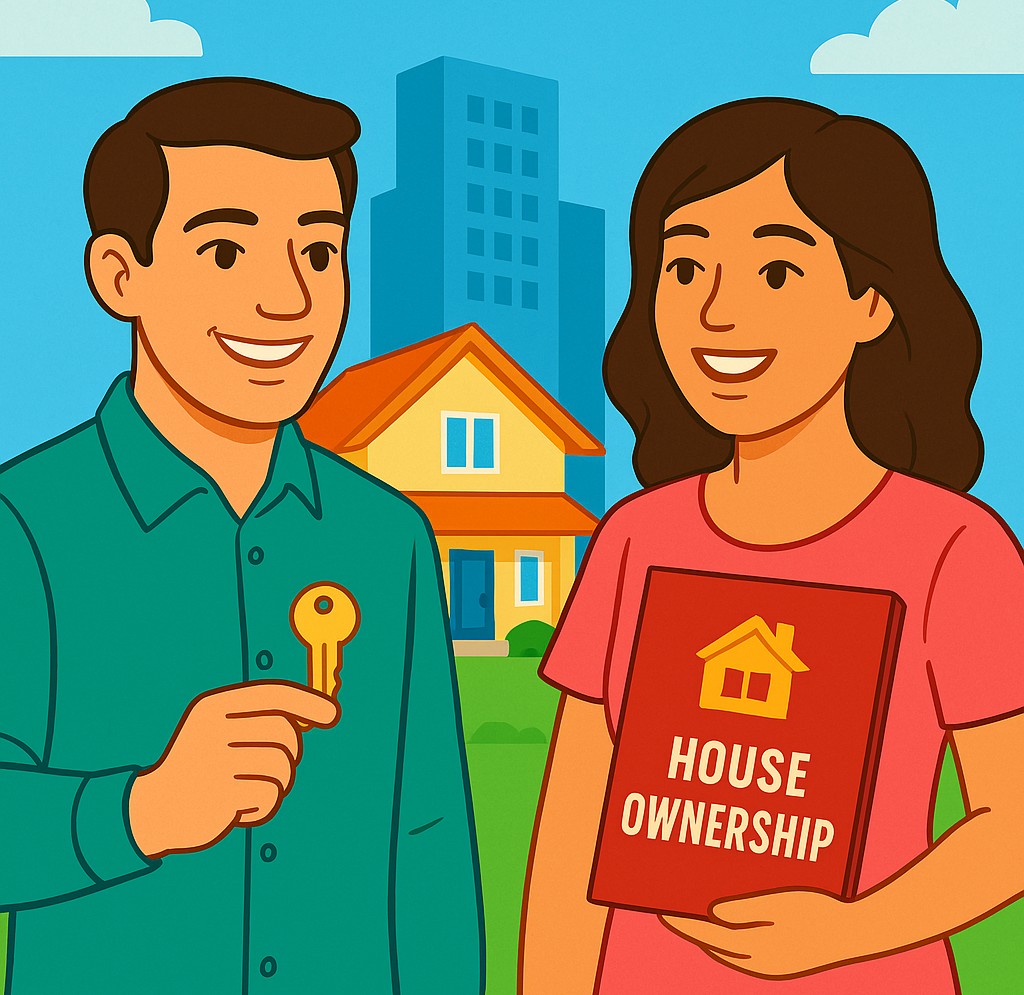Amidst the increasing wave of international investment, the right to own residential property by foreigners has become a matter of interest in Vietnam. With the aim of promoting economic growth while safeguarding national interests, Vietnamese law has clearly stipulated the conditions, scope, and limitations of foreign home ownership, thereby laying the foundation for a stable and transparent real estate market during the integration period.

1. Entities eligible for home ownership in Vietnam
According to Clause 1, Article 17 of the Law on Housing 2023, the following foreign entities are permitted to own houses in Vietnam:
a) Foreign-invested economic organizations investing in housing construction projects.
b) Foreign organizations operating in Vietnam, including branches, representative offices, investment funds, and foreign bank branches.
c) Foreign individuals who are lawfully permitted to enter Vietnam (excluding those entitled to diplomatic or consular immunities and privileges).
In addition, they must meet the specific eligibility requirements set out in Article 18, including:
- Foreign-invested economic organizations: Must be investors in commercial housing construction projects in accordance with the Law on Housing and the Law on Real Estate Business.
- Foreign organizations: Must possess a valid investment certificate at the time of entering into housing-related transactions, issued by a competent authority in Vietnam in accordance with the law.
- Foreign individuals: Must lawfully enter Vietnam and must not fall under the category of individuals entitled to diplomatic or consular privileges and immunities.
2. Forms of home ownership
Under Clause 2, Article 17, foreigners may own houses in Vietnam through the following methods:
- Investing in the construction of commercial housing projects in Vietnam.
- Purchasing or leasing-purchasing commercial houses from the project developer of a housing construction project.
- Receiving commercial houses located within housing development projects (not in areas critical to national defense and security) by way of gift or inheritance.
- Purchasing or leasing-purchasing houses from other foreign individuals or organizations that have lawfully acquired housing ownership in Vietnam.
Note: Foreigners are not permitted to own houses located in housing projects situated in areas critical to national defense and security, as announced by the provincial People’s Committee.
3. Types of housing eligible for foreign ownership
3.1 Housing within commercial projects
According to Articles 16 and 17 of the Law on Housing 2023, foreign organizations and individuals are allowed to acquire the following types of housing, provided that they are part of an approved commercial housing project and are not located within restricted zones:
- Condominium apartments
- Detached houses (including townhouses and villas) within commercial projects
- Residential properties attached to land use rights
Ownership duration: A maximum of 50 years from the date the Certificate of Housing Ownership is issued, with a one-time renewal of no more than 50 years, subject to approval and upon request.
3.2 Inheritance and gift of housing
Foreigners and overseas Vietnamese who are lawfully permitted to enter Vietnam are entitled to:
- Inherit houses attached to residential land (i.e. immovable property associated with land use rights).
- Receive residential property as a gift from family members within the legal inheritance line.
3.3 Types of real estate not eligible for foreign purchase
- Foreigners may only lease or sublease real estate for limited use periods such as condotels (condominium-hotels), officetels (office-residence units), and shophouses (residence-retail units), but cannot own such properties.
- Foreigners are not allowed to own residential units acquired from Vietnamese individuals if the property is:
+ Social housing
+ Resettlement housing, or
+ Housing previously allocated by the State.
4. Ownership limits
According to Article 19 of the Law on Housing 2023, the following quantitative restrictions apply:
- For condominiums: A foreign individual or organization may own no more than 30% of the total number of apartments in any single apartment building.
Example: In a 100-unit condominium, foreigners may collectively own up to 30 units. - If multiple foreign individuals/organizations apply for ownership within the same building, the total foreign ownership may not exceed 30%, with allocation made proportionally or based on the order of registration.
- For detached houses in commercial projects: Foreigners may collectively own up to 250 houses within an area equivalent in population to one administrative ward.
- In case of a large ward comprising multiple neighborhoods and housing projects, the maximum of 250 detached houses applies to the entire ward.
- If these ownership limits are exceeded, competent state authorities may deny the issuance of Housing Ownership Certificates. In such cases, the foreign owner must either transfer ownership or authorize another party to manage the property.
The legal framework governing foreign ownership of residential property in Vietnam is designed to facilitate investment while ensuring national interests are safeguarded. Compliance with these legal conditions and ownership limits is essential to protect legitimate rights and foster a balanced development of the Vietnamese housing market.
📞 CONTACT LEGAL CONSULTANT:
TLA Law is a leading law firm with a team of highly experienced lawyers specializing in criminal, civil, corporate, marriage and family law, and more. We are committed to providing comprehensive legal support and answering all your legal questions. If you have any further questions, please do not hesitate to contact us.
1. Lawyer Vu Thi Phuong Thanh, Ha Noi Bar Association
Email: vtpthanh@tlalaw.vn
2. Lawyer Tran My Le, Ha Noi Bar Association
Email: tmle@tlalaw.vn
TTQ

